One Kannada Novel a Year
My family comes from Dharwad and Haveri in northern Karnataka and I grew up in Bangalore, speaking Kannada all my life. I spoke in a different dialect at home than outside, and for the first 12 years of my life, it’s the language I thought in. But I only ever wrote and read in Kannada for school. I studied the langauge in school as my third language until 8th grade. I read some children’s stories as a child, but in my teens, I didn’t find any books that interested me. Once I gave up studying the language in school as a subject, I inevitably reduced reading in Kannada and rarely ever wrote the script. It wasn’t until I moved to Pune in 2019, away from the language of my home and city that I really started to miss it. Now, I only spoke Kannada on the phone with my parents for a few minutes, and there weren’t any newspapers or boards or notices around in the script that reads like poetry. I noticed that my vocabulary began to decline and it became harder to express myself in Kannada. When I came back home for the winter break, I decided that I wanted to stay in touch with the langauge, and to do so, I decided to read at least one Kannada novel in a year.
It was quite hard at first. I hadn’t read passages in Kannada since 2015 and I would get tired of stumbling over the words and impatient about not reading fast enough for the story to move forward. I would barely read 4-5 pages a day, and this is still the case when I pick up a Kannada novel after many months. It was also hard to read because of the style of writing - the writing and narration in the books is often more formal, more proper than how the language is spoken in everyday life. I think it’s partly because of how we’re taught to read the script in a ‘proper’ way (usually the Mysore dialect), and often also the narration style uses words that you don’t hear in conversations anymore. But once I push past the inertia and get used the style of the book, I enjoy reading it very much - it reminds me of Bangalore, of home, when I’m thousands of miles away.
And so here is a list of Kannada novels I’ve read in the past few years. I have bought most of them from Ankita Pustaka, a Kannada bookstore and publishing house in Basvangudi, Bangalore. If you have any recommendations for well written, contemporary Kannada novels, preferably written by women, do send them along!
2020: Karvalo by Poornachandra Tejasvi
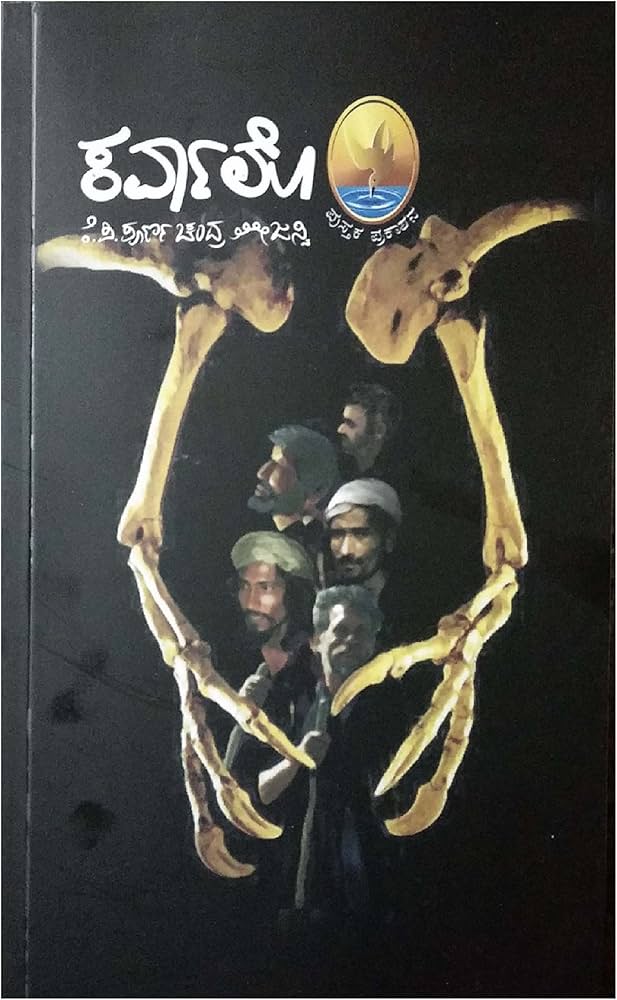 Karvalo is the first book I picked up, because it is about a farmer, a scientist and a local ne’er-do-well, searching for a rare flying lizard in the forests of Western Ghats. The narrator, a well-educated farmer who is struggling with agricultural work, meets Karvalo, a scientist who is seeking to find a species of flying lizard thought to be extinct. The story is about Karvalo and Madanna – a local farmhand thought to be good-for nothing, but is actually an adept naturalist – going into the forest to find this flying lizard. The book describes farming troubles and the socio-economic context of a small village, has long conversations about evolution and speciation, and promises a great adventure into the forest to find this elusive lizard.
Karvalo is the first book I picked up, because it is about a farmer, a scientist and a local ne’er-do-well, searching for a rare flying lizard in the forests of Western Ghats. The narrator, a well-educated farmer who is struggling with agricultural work, meets Karvalo, a scientist who is seeking to find a species of flying lizard thought to be extinct. The story is about Karvalo and Madanna – a local farmhand thought to be good-for nothing, but is actually an adept naturalist – going into the forest to find this flying lizard. The book describes farming troubles and the socio-economic context of a small village, has long conversations about evolution and speciation, and promises a great adventure into the forest to find this elusive lizard.
2021: Hijab by Guruprasad Kaginele
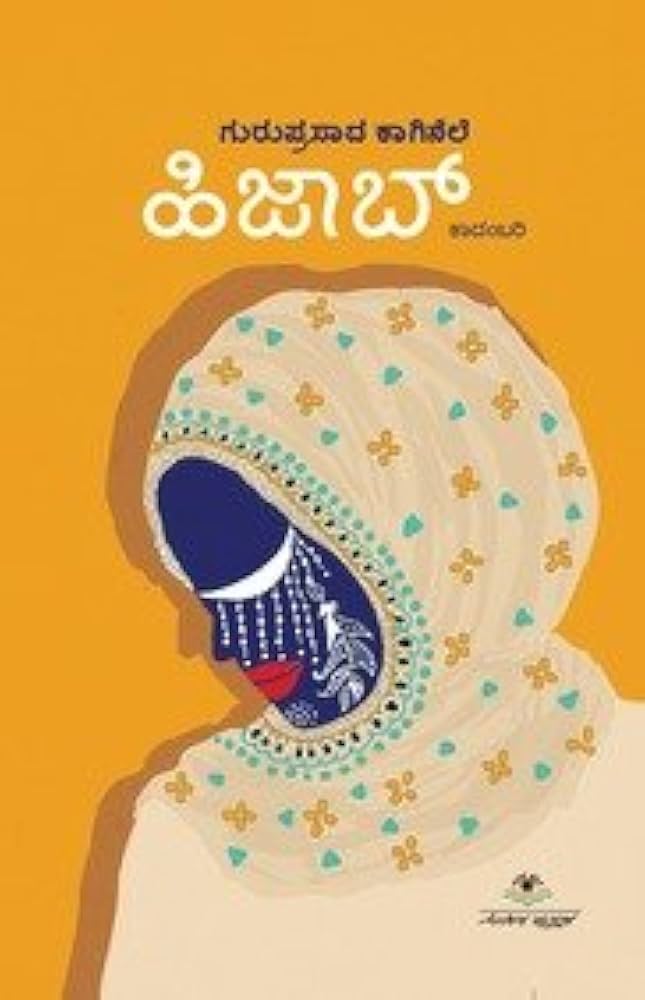 At the beginning of 2020, I went to Ankita Pustaka, a Kannada bookstore I’ve been visiting from an early age and asked the manager to recommend a contemporary novel, discussing current-day issues. She presented me with Hijab and I was immediately intrigued - it was about immigration conflicts in a small, rural town in Minnesota. Three Kannadiga doctors find themselves practicing in this non-descript town where no one American doctors wants to work. They find themselves at odds with the immigrant Somali population and their beliefs and customs about childbirth. This novel juxtaposes the identity battles of the migrant Indian doctors and refugee Somali families. While I was skeptical about how the author would narrate the story of a place and people so far away from the language of the book, Kaginele makes it read very organic - the American doctors, Indian doctors, townspeople and Somali migrants all have dialogues in Kannada, but it doesn’t feel foreign at all.
At the beginning of 2020, I went to Ankita Pustaka, a Kannada bookstore I’ve been visiting from an early age and asked the manager to recommend a contemporary novel, discussing current-day issues. She presented me with Hijab and I was immediately intrigued - it was about immigration conflicts in a small, rural town in Minnesota. Three Kannadiga doctors find themselves practicing in this non-descript town where no one American doctors wants to work. They find themselves at odds with the immigrant Somali population and their beliefs and customs about childbirth. This novel juxtaposes the identity battles of the migrant Indian doctors and refugee Somali families. While I was skeptical about how the author would narrate the story of a place and people so far away from the language of the book, Kaginele makes it read very organic - the American doctors, Indian doctors, townspeople and Somali migrants all have dialogues in Kannada, but it doesn’t feel foreign at all.
2022: Ghachar Ghochar by Vivek Shanbhag
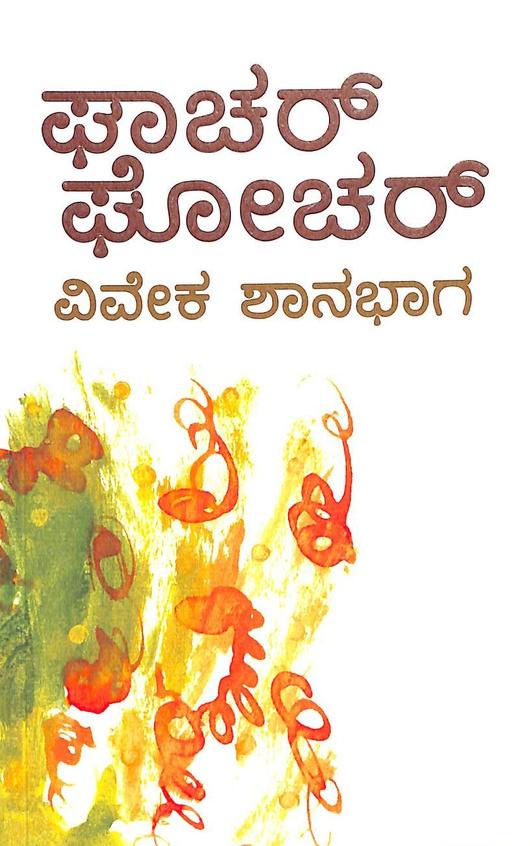 I came across Ghachar Ghochar because it was a Kannada novel shortlisted by NYT as one of the best books of 2017, and went on to win international awards. It’s a short novel, but definitely packs a punch. It is about the dynamic shift in a dysfunctional family when they become rich overnight. “Ghachar Ghochar” is a nonsense phrase referring to something tangled beyond repair, a knot that can’t be untied – and this is what their family dynamic feels like. The narrator is a sensitive man who seems to be spun around in the tornado of animosity and strife in his family. There is an incredibly memorable passage about ants infesting their cramped house, and is a metaphor for the family’s intolerance to outsiders. The story is set in Bangalore, my hometown, and the description of the buildings, food and overall ethos feels very familiar. The book is truly a modern classic.
I came across Ghachar Ghochar because it was a Kannada novel shortlisted by NYT as one of the best books of 2017, and went on to win international awards. It’s a short novel, but definitely packs a punch. It is about the dynamic shift in a dysfunctional family when they become rich overnight. “Ghachar Ghochar” is a nonsense phrase referring to something tangled beyond repair, a knot that can’t be untied – and this is what their family dynamic feels like. The narrator is a sensitive man who seems to be spun around in the tornado of animosity and strife in his family. There is an incredibly memorable passage about ants infesting their cramped house, and is a metaphor for the family’s intolerance to outsiders. The story is set in Bangalore, my hometown, and the description of the buildings, food and overall ethos feels very familiar. The book is truly a modern classic.
2023: Manvantara by Vasumati Udupa
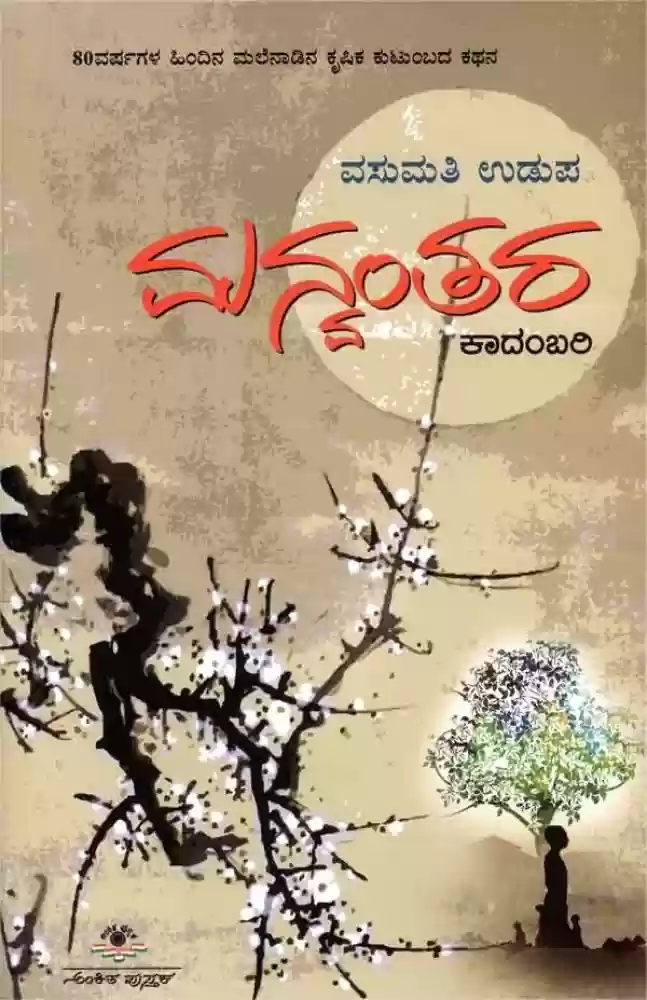
Before leaving for Zurich in May 2023, I went back to Ankita Pustaka for another novel, another year. This time, I wanted a book written by a woman and something set in Karnataka, for me to read when I missed home the most. The manager this time suggested Manvantara - a saga of an agricultural family living on the eastern slopes of the Western Ghats. This book is more conventional than others I’ve read before. The protagonist, Kaveri, is the righteous woman who is wronged (by being married off to an undesirable man after her father dies), but suffers through it without complaint for the first half of the book. In an interesting turn of events, she then takes charge of her life and brings up her children as a working single mother. I enjoyed certain aspects of this book immensely - the bond between Kaveri and her family, the dialogues, the descriptions of the farming cycle of areca nut and rice in rural Malenadu, and the unabashed cups of coffee they drink! But, I was quickly tired of Kaveri’s pointless and at times, self-inflicted suffering (not unlike a tv serial) and I wish the cast of characters had been expanded to give an external point of view to the family dynamics.
2024: Ondu Aaneya Sutta by Girimane Shyamrao
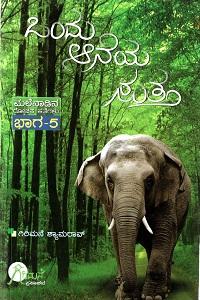
After I graduated and came back home for a break, my sister, Aparna, highly recommended this book, Ondu Aaneya Sutta, which translates to Around an elephant. The book revolves around a small town in the Western Ghats (I know that’s the 3rd one!) that is plagued by a lone male elephant addicted to the illegal liquor brewed around the town. The story narrates the escapades of the elephant and the skeletons that are revealed in the process of trying to catch it. Shyamrao does a beautiful job of balancing the human-wildlife conflict – on the one hand, you feel bad about the people who lose their crops and lives because of the elephant, and at the same time, you see that human settlements have encroached on what is the natural range of these majestic animals – where are they supposed to go? The story is well-paced, but if there was one thing that grated, it was the misplaced moral superiority in a segment looking down on people vacationing in an expensive resort, supposedly obscene for their ‘revealing clothes’.